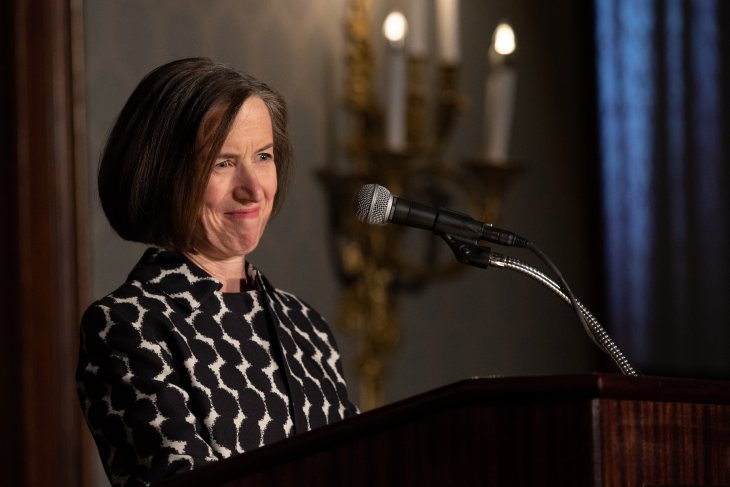Deb D’Arcangelo

"The things that would stress you out in normal times you realize mean nothing now."
Deb D’Arcangelo ’82 is passionate about building community and creating opportunity — two guiding purposes she discovered and honed as a student at Exeter. She’s accomplished both as chief executive officer of the Council for Relationships, an 88-year-old nonprofit providing mental health services to more than 6,000 residents of greater Philadelphia. The COVID-19 pandemic has given her work new meaning. “It’s really brought mental health to the forefront,” D’Arcangelo says. She’s ensuring that the organization is rising to meet the challenge.
D'Arcangelo has been just as passionate about her support for PEA. She served as a trustee and was among the inaugural recipients of the President's Award, established in 1989 to recognize volunteers for Exeter who have made outstanding contributions to the Academy.
We spoke with D’Arcangelo about the importance of community mental health in a challenging and rapidly changing environment:
Virtual therapy
“The Council for Relationships is a very people-centered place. For two years, we’ve been preparing to offer therapy online. There were a lot of procedures and policies that had to be in place before going online and, initially, many of our therapists didn’t want to do it. Then, in March, we went from seeing all of our clients in person, face-to-face, to video conferencing and on the phone. Our therapists discovered that it works. All of our education programs, classes and clinical practicums were moved online as well.”
COVID-19’s impact
“The COVID-19 crisis has created an opportunity to focus on mental health. It’s going to take a terrible toll on our health care workers. We think many are powering through this crisis now because they need to, but they’re going to need significant help to address their trauma. Many of our therapists are trained in trauma.
“We started a new initiative, Those Who Care for Our Community, which provides free therapy for health care workers and other essential workers in Pennsylvania and New Jersey.
That includes grocery store workers, delivery workers, transit employees and others who are making sure we have essential services but are worried about exposure to disease. We launched a public relations campaign to help get the word out to all of these workers that they can come to us for free.
“We also provide low-cost services to people with lower incomes; they’re often essential workers with underlying health conditions and are disproportionately affected by COVID-19. Our waiting list for our low-fee services grew by 30% in April.”
A lot going on
“We’ve seen an increase in our online therapy services. It’s a different dynamic for clients: couples on video in their own homes act differently than when they’re in a therapist’s office. Our therapists are also noticing that people who appeared to have their act together before COVID-19 are having a hard time. It seems people generally do better with structure in their lives. Clients have a range of concerns. People are either too close (in their homes) or too far away due to social distancing. Parenting young children as well as home-schooling is challenging. There’s a lot going on.”
What’s important, what’s not
“My family is so fortunate. I try to focus on how much we have that is good and what we’re doing to look out for others and make sure they don’t get sick. The things that would stress you out in normal times — for example, a messy house — you realize mean nothing now. You discover what’s important and what’s not.”
Work continues from afar
“I come to the office daily using appropriate social distancing. Normally, there are hundreds of people coming through each week; our waiting room was full during the late afternoons and evenings. Even though people aren’t here physically, I know our services are happening online. Our staff is very connected and still serving the community. The work continues even from afar.”
— Debbie Kane
